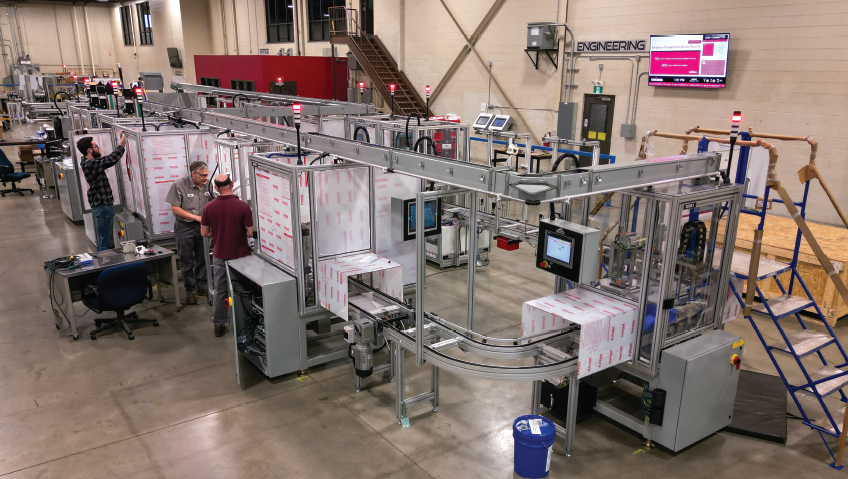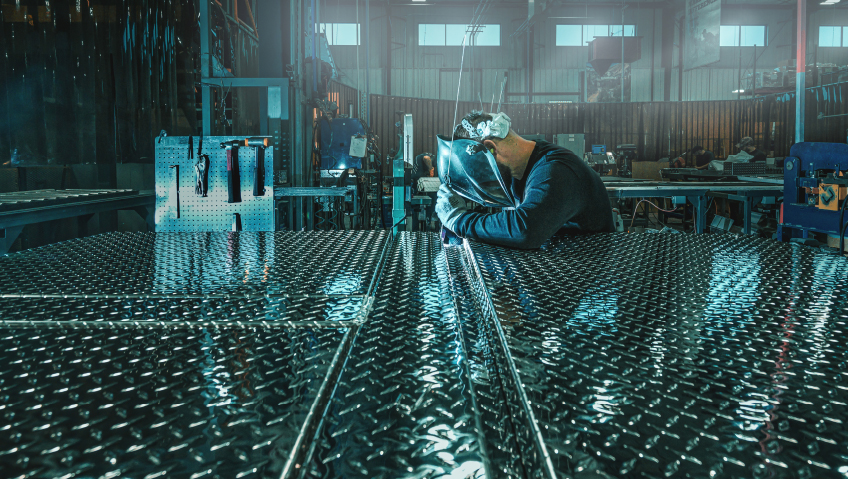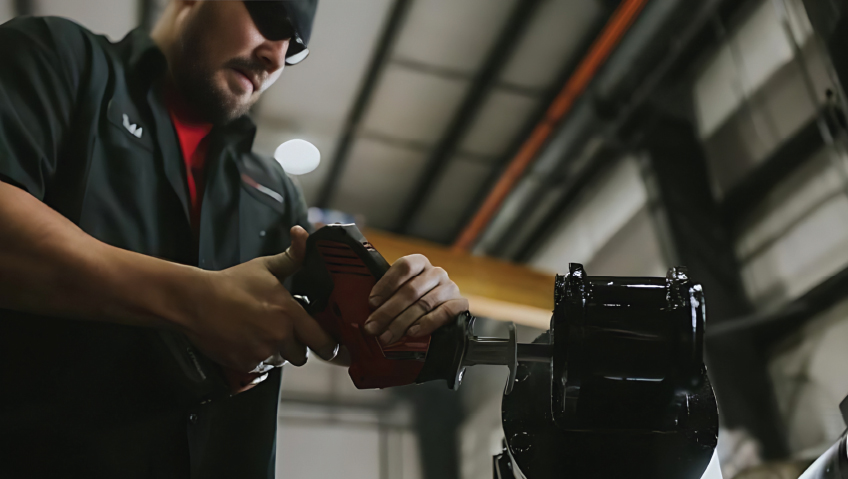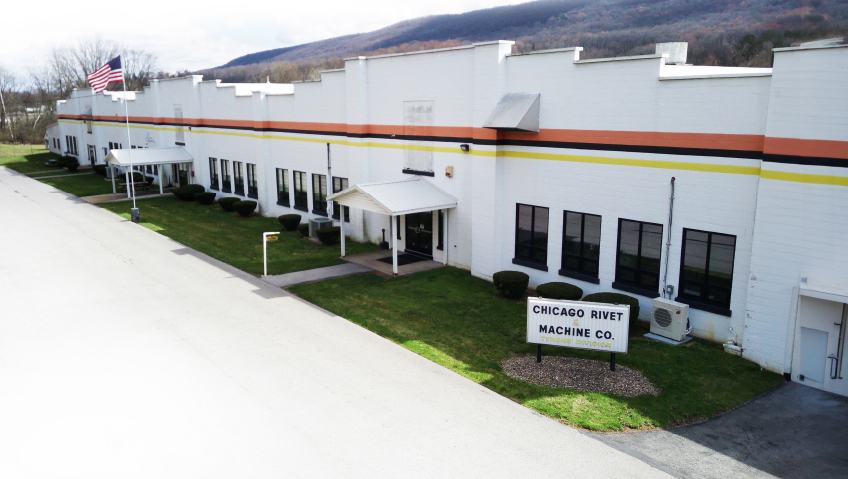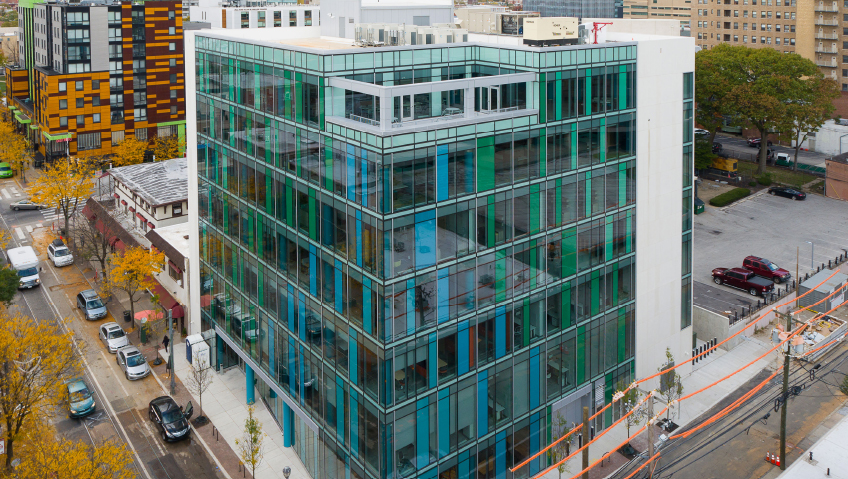Custom automation service provider Systematix, now Samuel Automation, has recently become an integral part of a much larger corporate ecosystem, and now boasts more power and resources than it ever has before. What one may not realize is that the beginnings of the business were quite a bit humbler…
Systematix began life in 1988 as an automation company in a small facility in Waterloo, Ontario, and was originally the spinoff of an industrial fastener business. Over many years, its brand slowly grew thanks to the work it found within window and door manufacturing. From there, the company expanded its services into diverse industries like automotive and medical device consumer products, as well as into new energy solutions like solar, electric, and wind power. Today, now as Samuel Automation, the company continues its evolution as a home-grown Canadian company with a global reach.
Regional Manager Don Weber says there are many types of automation in the market today, and this can lead to some confusion among potential clients, so the company feels that specific language about automation is all-important to its identity. To that end, the company distinguishes itself by focusing on custom automation, an engineering-intensive style that involves assembling precision parts and offering a turnkey solution when it comes to automation across a variety of sectors.
“Our specialty is projects with multiple parts that need verification and testing,” says Weber.
“We do very well at that.”
In 2021, the company was acquired by Samuel, Son & Co., a Canadian metal manufacturing and supply giant with over a century to its name. As its partner, Samuel Automation now has far greater support for its operations, giving its two bases of operation in Waterloo, Ontario and Tucson, Arizona a boost while granting it additional resources to balance its workload.
The acquisition has even led to integrating more partners into the fold, and this has resulted in the creation of Samuel Automation. The group is a triumvirate consisting of Systematix itself and its partner organizations RAMP (a custom automation manufacturer based in Waterloo) and CAID Automation (a custom automation manufacturer based in Tucson). This new acquisition within Systematix, as well as the ongoing collaboration with multiple divisions of Samuel, Son & Co., has been a big factor in the company’s recent successes and overall positive momentum.
Leading the way into new endeavors has become practically inseparable from the modern Samuel Automation approach. Over the past year, the company has begun partnering with various OEMs (original equipment manufacturers) to do further energy product development.
Weber says that the clean energy market is really changing now. Instead of just offering clients in the new energy space a machine to build a product, Samuel Automation will partner with them early on to offer engineering, research and development, and product development services for a more holistic approach. This allows the client to get their product to the market faster and more economically. This step is still in a nascent phase, but the company continues to move forward, intending to implement automation and make processes around it more efficient for clients.
Reflecting on the company’s ongoing work in the green energy market, Weber notes that Samuel Automation has been working on more projects involving fuel cells, battery modules, and other clean energy initiatives. This work is meant to both promote and develop these products while building the automation to manufacture them.
Many markets want to switch to more sustainable solutions; for example, within the realm of custom automation, there is a significant appetite from customers to move to electric drives instead of pneumatics. While pneumatics is the most widely known energy solution in automation today, electric drives use considerably less energy and are preferable when moving toward greener automation.
This desire for new energy solutions gives Samuel Automation more versatility in the market, as electric drives are programmable and use less energy with more flexibility, with the ability to add more products to a line in the future or to accommodate more than one part on a machine.
Indeed, flexibility is the name of the game when it comes to programming automation based on a customer’s needs. “Everything we do is custom,” says Weber. While forming early partnerships with clients is a big part of this approach, it also involves getting into the details of what customers want and understanding the unique challenges of each.
When someone wants a product with many pieces and precision assembly and wants these at a fast rate and with data collection and storage after the fact, every job is about getting as many details as possible on the part. From there, Samuel Automation can scale a custom solution to the market that works in every way the client needs.
This process illustrates that the team operates on the adage of ‘work smarter, not harder.’ Weber points out that this attitude is much needed in the industry, as is alignment between customer needs and the services it provides. “We try to be very honest and transparent with the customer,” he says, and much attention is paid to ensuring that Samuel Automation can indeed provide the best help to achieving a customer’s goals.
For example, during the custom build/design phase of a project, the team goes to great lengths to make sure it shares its three-dimensional designs—constructed in design software SolidWorks—so the customer can review it in detail before any metal is cut. This guarantees that the customer fully understands and is comfortable with everything from the product side, which can, in turn, save a lot of work later during the review process. Indeed, the word ‘custom’ is only meaningful if the end user has as much control over automation design as possible.
Currently, Samuel Automation and the custom automation sector at large are seeing increasing levels of activity from customers. The company itself has a very broad range of industries and products being brought to market, albeit with a degree of caution as many clients need to acknowledge various factors when moving forward with projects, such as economic difficulties, current global trends, and world events. The custom automation industry is seeing many new technologies, products, and exploration within those areas and, barring any hesitancy from its clientele, the business is ever ready to move forward with the next automation solution.
Weber says that moving forward into 2024, Samuel Automation will be looking to promote the technical strength and experience of the three sister companies under the umbrella of Samuel, Son & Co. It will also push its growth in multiple new industries, like new energy, and continue to diversify as much as possible.
Samuel Automation will “grow and improve and work with our existing customers and new customers alike,” as Weber says, to continue being the premier choice in its field for custom automation solutions.

